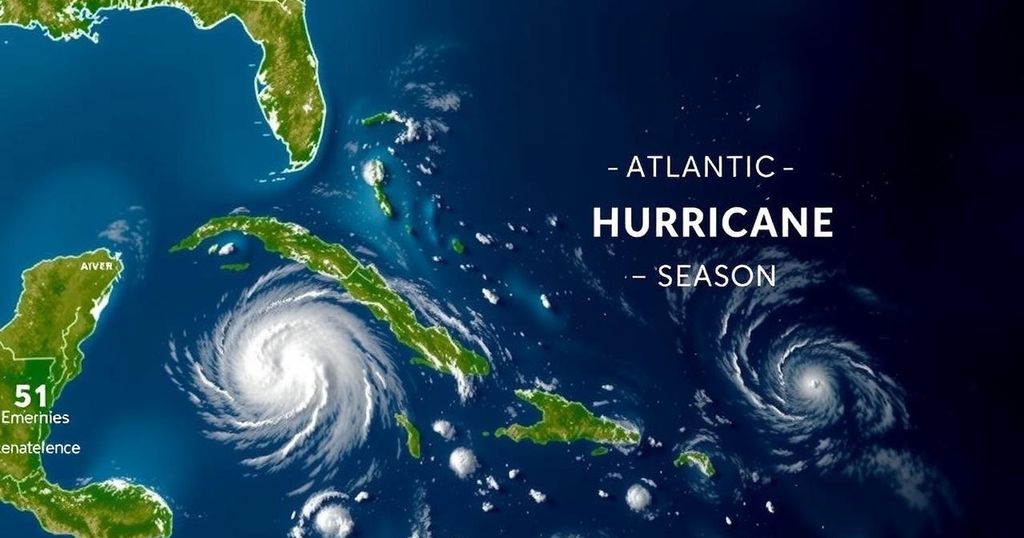A Record-Breaking 2024 Atlantic Hurricane Season: A Retrospective

The 2024 Atlantic hurricane season was historic, yielding a record-breaking 18 named storms, including 11 hurricanes and five major hurricanes. Notable storms included Hurricane Beryl, the earliest Category 5 hurricane, Hurricane Helene, which resulted in over 150 fatalities, and Hurricane Milton, known for its rapid intensification. Additionally, three hurricanes coexisted in October, a first in recorded history. The season concluded with Hurricane Rafael, underscoring the unique challenges posed by late-season storms.
The 2024 Atlantic hurricane season concluded as an unprecedented event, with forecasters accurately predicting a highly active period. Driven by atypically warm sea-surface temperatures and diminishing El Niño conditions, the season produced 18 named storms, including 11 hurricanes and five major hurricanes of Category 3 or higher. This performance significantly surpassed the average of 14 named storms, seven hurricanes, and three major hurricanes per season, as defined by the National Oceanic and Atmospheric Administration (NOAA).
Among the year’s historic storms was Hurricane Beryl, which made its mark as the earliest recorded Category 5 hurricane, reaching its peak intensity in July. The storm caused substantial damage in Texas and Louisiana, highlighting the impact of extreme weather patterns. Hurricane Helene also gained notoriety for its immense size and destructive force, making landfall in Florida as a Category 4 storm and ultimately resulting in more than 150 fatalities across the eastern U.S., marking it as the most lethal hurricane since Katrina in 2005.
Additionally, Hurricane Milton gained global attention for its extraordinary rapid intensification, with wind speeds increasing by an astounding 90 mph within 24 hours. It peaked as a Category 5 storm, causing significant tornado activity and rainfall upon landfall on the Florida coast. October also saw a remarkable occurrence of three simultaneous hurricanes—Milton, Kirk, and Leslie—the first of its kind in recorded Atlantic history. The season concluded with Hurricane Rafael, which emerged in November, a rare timeframe for hurricanes in the Gulf of Mexico.
Overall, the occurrences during the 2024 season served as a poignant reminder of the increasing volatility and unpredictability of Atlantic hurricane activity.
The Atlantic hurricane season typically runs from June 1 to November 30. During this period, the National Oceanic and Atmospheric Administration (NOAA) closely monitors storm systems that could develop into hurricanes. The conditions that influence hurricane formation include sea-surface temperatures and atmospheric phenomena such as El Niño and La Niña. In 2024, the interplay of unusually high sea temperatures and a shift from El Niño contributed significantly to the record number of storms and hurricanes. Historical data suggests an increasing trend in hurricane intensity and occurrence, prompting heightened research and caution within the meteorological community.
In summary, the 2024 Atlantic hurricane season was marked by an unprecedented level of activity, highlighted by significant storms such as Beryl, Helene, Milton, and Rafael. This season continued to showcase the escalating intensity and frequency of hurricanes impacting the Atlantic region, raising important considerations for future preparedness and response strategies. The record-setting developments during this season further underscore the need for continued vigilance and advanced research in hurricane forecasting and climate response measures.
Original Source: www.nola.com






